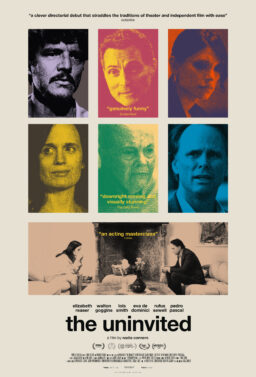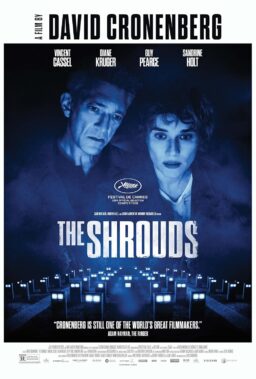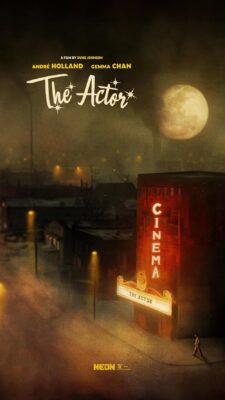Q. I just saw the Golden Globe nominations, and “Babe” is nowhere in there. Not for best script, not for best direction, not for nothing. I consider this a scandal. I’d like Congress to investigate. (Don Hinkle, Green Village, NJ)
A. Hey, “Dark City” isn’t in there, either. It is important to understand (1) the Globe voters are mostly not film critics but celebrity and gossip writes; (2) the Globes exist as a pretext for a profitable TV show; (3) if the voters were film critics, they would just go and vote for films on the basis of quality, and hurt the TV ratings. Still, it must be said that on the whole this year’s Globe nominations are not bad, for what they are. They’re more judicious than in years past when the fix sometimes seemed to be in.
Q. Now that “Gods and Monsters” has been given the award as Best Film of 1998 by the National Board of Review, the question arises–who are they? I pulled out a 1960 issue from my inherited postwar collection of their magazine, “Films in Review,” and found this statement on the back cover: “The National Board of Review is an independent, non-profit organization of public-spirited citizens founded in 1909 to represent the interests of the motion picture public…., etc.” I called New York information for their number; no listing. I take it that within the circle of film critics, this group is something of an enigma? Who appoints them? (Tom Norris, Braintree, Mass.)
A. I have never met anyone who has met a member of the National Board of Review. The director John Boormann recently told me that he attended one of their award banquets at the Tavern on the Green in Central Park, and met several other award winners. There was a celebrity host to hand out the prizes. “After I got back home,” he mused, “I realized that I had not met a single person claiming to be a member of the National Board of Review.”
Q. As a fellow film critic, I would like to ask a question regarding my choice (so far) as the best film of 1998. I saw “Dark City” back when it was first released, and the entire audience arose and gave the film a standing ovation. But it must have been a great group of people, because since then, all I’ve heard is negative comments, even from complete strangers who’ve seen my T-shirt (I bought it and love it). I would like to know how the films “2001: A Space Odyssey” and “Blade Runner” were received by the public. They are obviously among the best science fiction films ever made; I’ve heard rumors that both were hated by the public. Is this true? (Boyd Petrie, Salt Lake City, Utah)
A. “Dark City” was also my choice as the best film of 1998. It’s the kind of visionary science fiction movie that requires a smart, attentive audience; it doesn’t just pound the gape-jaws with special effects. At the University of Colorado at Boulder last April, I went through it a scene at a time with about 1,000 students over the course of a week, and the more closely we looked, the more it impressed us. “2001” and “Blade Runner” were also slow starters at the box office, but eventually achieved cult status.
Q. I just watched (sort of, while painting the sunroom) “The Lost World: Jurassic Park” again, and was reminded of something that really amused my husband and me when we first saw the movie–the names of Roland and Van Owen. They are obviously a reference to the song “Roland the Headless Thompson Gunner” on the late 70’s Warren Zevon album featuring “Werewolves of London”. Listen to the song. Do you know who got those names in there? Whose joke was that? (Linda Reed-Warren, Champaign, IL)
A. David Koepp, who wrote the screenplay for “The Lost World,” replies: “I’m so happy somebody picked up by Warren Zevon reference. ‘Roland the Headless Thompson Gunner’ is one of my favorite songs, and since Roland is a mercenary in the song, that seemed like a good name for the hunter-for-hire in our movie. While I was at it, I thought it would be fun to make his nemesis’ last name Van Owen, like in the song. It’s okay to use my name as a source for this. I’m not afraid of anyone who has a room in their house called a sunroom.”
Q. I agree almost completely with your reviews of both “Psycho” films, but I must point out that the voice of the policeman in the remake was unaltered. That is James Remar’s actual voice, and one of the few bits of casting that worked well, I thought. (David J. Bondelevitch, Studio City, CA)
A. Remarkable. I wrote that Remar “has a speaking voice which, I think, has been electronically tweaked to make it deeper.” It sounded eerie. Love to hear him sing “Asleep in the Deep.”
Q. That auction price of $250,000 for the Cowardly Lion’s costume–a record? What was the old record? Does it mean Planet Hollywood has millions of dollars of inventory hanging on its walls? (Casey Anderson, Schaumberg)
A. The lion’s costume broke a three-year-old record of $145,500, which was the winning bid for John Travolta’s white disco suit from “Saturday Night Fever.” So says Gene Siskel, who owned the suit for many years after outbidding Jane Fonda at a charity auction. (He paid $2,000.) Only a few movies are so special that their props fetch prices in this range. Among them: “Gone With the Wind,” “Casablanca,” “Citizen Kane,” “The Wizard of Oz” and the Star Wars series. The “eye” plate for Hal 9000, the computer in “2001: A Space Odyssey,” would probably earn in the same high range if it were ever auctioned.
Q. I’ve been watching for years how “blooper” reels went from the credit sequences of Burt Reynolds/Hal Needham films, to their current popularity at the end of major films and television shows. But the question I have is about the bloopers for “A Bug’s Life:” How can a film planned and animated with care and complete control have a blooper reel? I mean, did they go to the expense of computer animating bloopers that took place when the character voices were being recorded? What’s next? News bloopers? PBS bloopers? (Jeff Young, Lake Elsinore, California)
A. Yes, they went to the expense of deliberately making the bloopers, which were so popular with audiences that on Dec. 18 new bloopers were added to the end of “A Bug’s Life” in theaters. The video release of the film will include all of the different bloopers.
Q. Regarding “Mighty Joe Young,” why does the ape have a human name? In my movie guide it lists the original movie of 1949 with Terry Moore, Ben Johnson, Robert Armstrong and Mr. Joseph Young. Who is Mr. Joseph Young? Why was he so popular as to have the ape named after him? (Elaine Procento, Hoffman Estates, IL)
A. Joe Young, an actor who had been appearing in movies since the 1920s, worse the monkey suit and portrayed Mighty Joe in some scenes of the 1949 movie–but without an onscreen credit, perhaps because it would all have become too confusing. The 1949 movie’s original working title was “Mr. Joseph Young of Africa.” In the new movie, the gorilla is named “Joe” by its human friends while still a baby, and it never referred to as “Mighty Joe Young” except by a promoter after it is brought to America for public exhibition.











